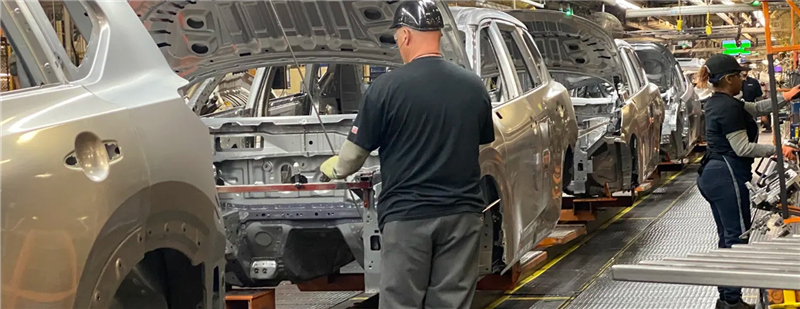-
周密:中国申请加入CPTPP彰显其对贸易和改革的承诺
最后更新: 2021-10-01 20:06:10China’s CPTPP bid underlines its commitment to trade and reform
Zhou Mi
China submitted its formal application this month to join the Comprehensive and Progressive Agreement for Trans-Pacific Partnership (CPTPP). During this time of turbulence in international trade, and of progress and reform in China, it serves as a strong signal that China intends to stay open internationally and improve economic standards domestically.
The trade pact is not new, of course. The US withdrawal in January 2017 of the proposed Trans-Pacific Partnership, the CPTPP’s predecessor, ended any chance of the TPP coming into effect. The remaining 11 TPP countries then made some adjustments to the original agreement and launched the pact as the CPTPP. Despite the agreement coming into effect in 2018, however, ratification by all signatories has been slow, due to concerns about potential adverse economic impacts. Chile has yet to ratify the agreement because of major domestic opposition.
The reason for such concern is partly due to the unique nature of the CPTPP, which is not simply a “normal” trade agreement whereby all parties pledge to reduce trade barriers, mainly through cutting tariffs. It also confers on all parties responsibilities to raise the standards of their economy in exchange for greater access to each other’s markets. This balance between obligation and reward affords all parties a more even playing field, at the potential expense of national sovereignty, as the CPTPP empowers the creation of ad hoc arbitration bodies and subsequent consequences for any party that violates the treaty. The CPTPP addresses areas that past treaties have mostly shied away from, including setting standards on intellectual property, labour, state-owned enterprises, ESG (environmental, social and corporate governance) and investment for member states, in exchange for obtaining “right of origin” access to each other. By harmonising the broader context within which economic activity takes places, these standards allow CPTPP countries to trade under fairer conditions, so that no one country can gain an unfair advantage by ruthlessly and unsustainably exploiting domestic factors of production.
This is why China declaring its desire to join the CPTPP is so important. While actual entry into the trade pact may be uncertain, due to the high political and economic barriers, this serves as a powerful statement both to the world and to Chinese society. To the world, China has shown that it will maintain an open attitude to further international economic cooperation.
On international trade, China has had both successes, in the signing of the Regional Comprehensive Economic Partnership, and setbacks, in the stalling of progress on the Comprehensive Agreement on Investment between China and the EU. But it will neither rest on its laurels nor be discouraged by unfavourable headwinds. It is willing to make changes, both internationally and domestically, to promote a more integrated international order that can deliver greater prosperity to all. The RCEP is a more traditional free-trade agreement, similar to the FTAs signed in the past. China has recognised that moving forwards requires greater ambition than before, that future trade deals will extend far beyond simply tariffs, and will be a broader rebalancing of how the global economy is conducted. China’s desire to join the CPTPP reflects that greater ambition.
Domestically, the government has shown that it is determined to improve the quality and standards of the Chinese economy. In the past, when poverty was rife and China’s overall economic activity and production lagged behind countries with far smaller populations, economic growth was the paramount goal. The government’s priority was to secure people’s right to put food on the table. Success in the war on poverty meant that the government could move to the next rungs on Maslow’s hierarchy of needs. From as far back as 2014, China has started to move away from a focus purely on economic growth, towards looking at other measures of prosperity and happiness. Its first major move was to declare a war on smog. This has gradually grown into a broader progressive push over the past two years to improve society for all, much as the American progressives did in the early 20th century. The most prominent examples of this include the pledge to achieve carbon neutrality by 2060, moves against monopolies, and a greater focus on the excessive pressure placed on families and students, among others.
These moves were not made out of a desire to join the CPTPP, or any other international agreement for that matter, although these would act as a further incentive. The Chinese government, like all other governments, is ultimately responsible to its people, and it will always look for the right time and right ways to improve people’s welfare. That time is clearly now. This goal will be more effectively achieved for China if it is in the CPTPP, with fair and mutual market access to 11 other countries’ economies and markets, but it will be pursued regardless.
There remain challenges for Chinese entry into the CPTPP. Chief among them are the transparency requirements, IP protection, workers’ rights, standards for state-owned enterprises, and acquiescence to some degree of external pressure. However, even on these tougher fronts for reforms, China is showing its willingness to make necessary adjustments, and not view these external requirements as unfair pressure, but instead as another opportunity to prove itself as a responsible and productive member of the international community.
China is up to the challenge. Contrary to naysayers, it remains a dynamic power that is ready to improve itself, and help construct a global system that works for the benefit of as many people as possible.
Dr Zhou Mi is a senior research fellow at the Chinese Academy of International Trade and Economic Cooperation, and a China Forum expert.
Lee Jersey Wang is a China Forum associate.
本文系观察者网独家稿件,文章内容纯属作者个人观点,不代表平台观点,未经授权,不得转载,否则将追究法律责任。关注观察者网微信guanchacn,每日阅读趣味文章。
标签 CPTPP-
本文仅代表作者个人观点。
- 责任编辑: 小婷
-

秦刚:中美正在磨合中寻找新相处之道
2021-10-01 19:41 中美关系 -

埃塞俄比亚驱逐7名联合国官员,古特雷斯:震惊
2021-10-01 17:34 非洲之窗 -

跨境电商巨头Shein风靡欧美,能褪去中国底色吗?
2021-10-01 15:50 时尚 -

果然,欧澳自贸协定谈判停滞
2021-10-01 15:25 欧洲乱局 -

联合国维和摊款,中国已到位
2021-10-01 14:38 -

迪拜世博会中国馆正式开馆,习近平作视频致辞
2021-10-01 14:02 观察者头条 -

花滑王子羽生结弦的日本粉丝拜托中国观众一件事,大使馆回应
2021-10-01 13:42 北京冬奥会 -

澳大利亚宣布承认科兴疫苗
2021-10-01 12:49 -

28万亿美元债务天花板成僵局,耶伦有个大胆想法
2021-10-01 11:35 美国政治 -

莫里森:中国可成为“四方安全对话”合作伙伴,但…
2021-10-01 11:16 -

美国发来国庆祝贺,比往年多了一句
2021-10-01 10:05 观察者头条 -

中方在联大正告欧盟、加拿大
2021-10-01 09:28 -

美商务部施压中国购买波音飞机
2021-10-01 09:19 中美关系 -

朝鲜宣布成功试射新型防空导弹
2021-10-01 08:15 朝鲜现状 -

美国新增确诊107075例、死亡1801例
2021-10-01 08:13 新冠肺炎抗疫战 -

最后一刻,美国避免政府关门
2021-10-01 07:33 美国政治 -

“厄瓜多尔史上最严重的大屠杀”:监狱暴乱致116人死亡
2021-09-30 23:21 -

世卫人员性剥削非洲女性:致29人怀孕,最小受害者仅13岁
2021-09-30 22:23 非洲之窗 -

“省长没一个不贪的,警察当街拦财长索贿”
2021-09-30 21:05 阿富汗 -

法国前总统萨科齐因2012年竞选资金案被判处1年监禁
2021-09-30 19:07 法国见闻
相关推荐 -
 俄军宣布完全收复库尔斯克,乌方否认 评论 50
俄军宣布完全收复库尔斯克,乌方否认 评论 50 “强度极大”!伊朗一港口突发爆炸,已致5死超500伤 评论 103
“强度极大”!伊朗一港口突发爆炸,已致5死超500伤 评论 103 大错特错!“给特朗普献计的人,压根不懂中国” 评论 154
大错特错!“给特朗普献计的人,压根不懂中国” 评论 154 比较见真章,美国车主心态崩了:怎么中国啥啥都有… 评论 119最新闻 Hot
比较见真章,美国车主心态崩了:怎么中国啥啥都有… 评论 119最新闻 Hot-

“哪来的谈判?特朗普在臆想,中国会给他狠狠上一课”
-

俄军宣布完全收复库尔斯克,乌方否认
-

CIA副局长之子在俄乌冲突中死亡,“生前为俄方战斗”
-

“强度极大”!伊朗一港口突发爆炸,已致5死超500伤
-

罗马教皇方济各葬礼举行,英法美等多国领导人出席
-

大错特错!“给特朗普献计的人,压根不懂中国”
-

比较见真章,美国车主心态崩了:怎么中国啥啥都有…
-

特朗普称“克里米亚归俄罗斯”,泽连斯基回应
-

“美国百年优势,特朗普百日玩完,中国要赶上了”
-

领英创始人:若欧洲这么看中国,美国就惨了
-

“特朗普虚晃一招,中国没上钩”
-

日本:中国不买,我们想买美国玉米
-

特朗普:我开玩笑的
-

爱泼斯坦案关键证人自杀,曾称遭英王子性侵
-

“不跟中国做生意,美国货架要空”
-
Copyright © 2014-2024 观察者 All rights reserved。
沪ICP备10213822号-2 互联网新闻信息服务许可证:31220170001
网登网视备(沪)02020000041-1号 互联网宗教信息服务许可证:沪(2024)0000009
广播电视节目制作经营许可证:(沪)字第03952号
增值电信业务经营许可证:沪B2-20210968 违法及不良信息举报电话:021-62376571
![]() 沪公网安备 31010502000027号
沪公网安备 31010502000027号
![]() 中国互联网举报中心
中国互联网举报中心
 上海市互联网违法与不良信息举报中心
上海市互联网违法与不良信息举报中心

 观察员
观察员


